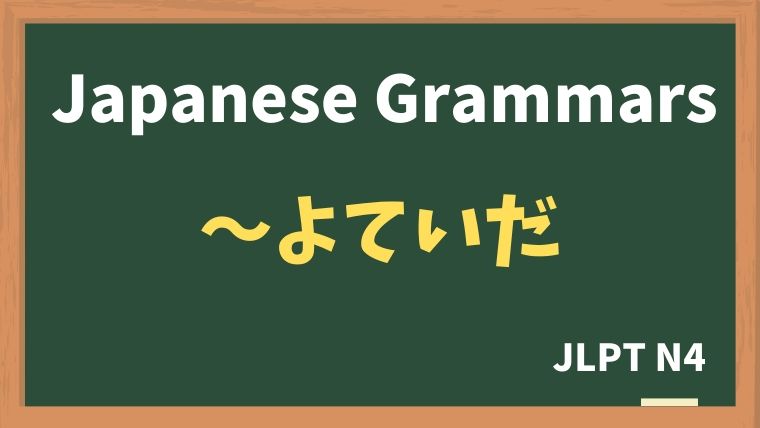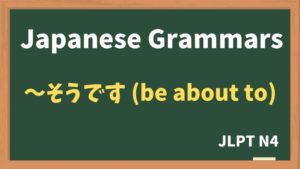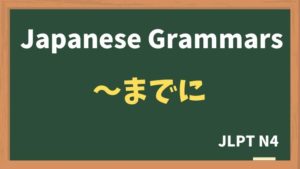
Explanation:〜よていだ
fa-check-circleMeaning
Used to indicate a fixed plan or schedule for the future. It is equivalent to saying "I am scheduled to ~" or "I plan to ~" in English. This phrase is typically used when something has already been arranged or when there is a definite plan, making it sound more certain than expressions like "〜ようと思っている."
fa-check-circleForm
V(dictionary form)+ よていだ
N + のよていだ
fa-check-circlePoints
- Definite Plan or Schedule: "〜予定だ" is used to convey a solid plan or arrangement, often implying that the details have already been decided.
- Time-Specific: This phrase is usually used with specific time frames, such as "tomorrow," "next week," or "in two days," to indicate when the plan will take place.
- Neutral Politeness: The expression is straightforward and neutral in tone, making it appropriate for both casual and formal contexts, depending on the ending (e.g., "〜です" for formality).
fa-check-circleJLPT Level
N4
Sample sentenes
来週は アメリカへ 出張の 予定だ。
I am scheduled to go on a business trip to America next week.
夏休みは 両親が 日本に 来る 予定だ。
My parents are planning to come to Japan during Summer vacation.
明日の 夜は 彼女と 映画を 見る 予定だ。
I am planning to watch a movie with my girlfriend tomorrow night.
大学を 卒業したら 国へ 帰る 予定です。
I am planning to go back to my country after I graduate college.
僕たちは 来年 結婚する 予定です。
We are planning to get married next year.
Vocabulary
| Japanese | English |
| しゅっちょう | business trip |
| りょうしん | parents |
| そつぎょうする | to graduate |
| ぼくたち | we |






